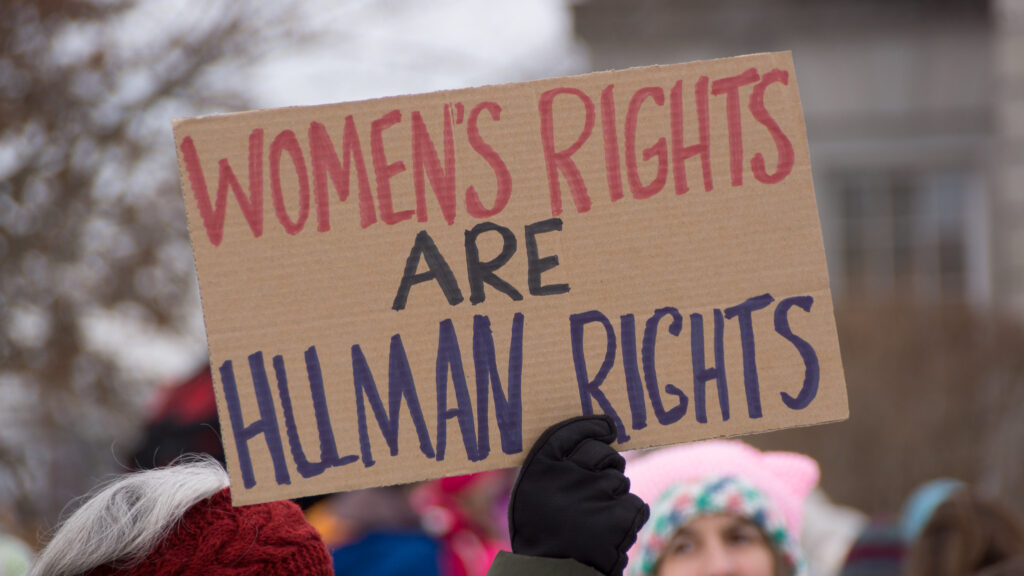Protect Women’s Rights

Image courtesy of Marc Nozell is unmodified and licensed under CC BY 2.0.
In 1970, the UN passed a document known as CEDAW (‘see-daw’), the Convention to Eliminate All Forms of Discrimination Against Women. CEDAW is known as the human rights document for women.
Only six nations in the world haven’t ratified CEDAW: Iran, Sudan, Somalia, Palau, Tonga – and the US.
We urge the US to support CEDAW and to join people around the world in standing up for the rights of women and girls.
Actions
1. Email your U.S. Senators
Ask your U.S. Senators to ratify CEDAW. In order for CEDAW to be ratified in the US, 67 Senators must vote YES.
- Find your U.S. Senators online here.
- Use or modify our email template to send to your Senators.
- Contact your city council and mayor.
2. Contact your city council and mayor
Cities throughout the US are standing up for CEDAW. These local actions send important messages to our senators: people in the US want the Senate to ratify CEDAW. Ask your city to pass a resolution supporting CEDAW.
- Find the contact information for your city council members and mayor on your city’s website.
- Download and sign a postcard in support of Cities for CEDAW.
- Send the postcard to your mayor and city council members.
3. Give a CEDAW presentation
Give a program in your community about CEDAW to people in faith communities, non-profits, schools, etc.
- Identify which organization might want to view a CEDAW presentation.
- Reach out to your contact at the organization to propose the talk and schedule the presentation. If you don’t have contact information, search for it online.
- World Without Genocide has a CEDAW PowerPoint and manuscript on the website for you to use.
Learn more
The Convention on the Elimination of all forms of Discrimination Against Women (CEDAW) is often described as an international bill of rights for women. The Convention defines what constitutes discrimination against women, and creates an agenda for action to end such discrimination. The Convention ensures women’s equal access to, and equal opportunities in, political and public life – including the right to vote and to stand for election – as well as education, health and employment. Countries that have ratified the Convention are legally bound to put its provisions into practice.
Only six nations have not ratified CEDAW yet, including the United States.
CEDAW has been used to improve women’s rights across the world.
CEDAW Achievements
- Japan passed equal employment practices laws and policies.
- Austria implemented policies to reduce the wage gap between men and women.
- The United Kingdom, Germany, Poland, Spain, and other countries improved maternity leave and child care for working women.
- Canada created The Institute of Gender and Health to combat health disparities between men and women.
- Mexico created a law to prevent domestic violence and increase penalties for perpetrators.
- Turkey raised the marriage age to 17 and allowed women to work outside the home without their husbands’ permission.
- Colombia created a committee to combat sex trafficking focused on prosecuting perpetrators, and protecting, assisting, and reintegrating victims.
- Honduras made agriculture training and loans available to women farmers.
- Kuwait extended voting rights to women.
- Bangladesh increased girls’ enrollment in elementary and secondary schools. Now, as many girls are going to school as boys.
- Uganda funded programs to reduce domestic violence.
- Cambodia developed a women’s ministry.
Find an overview and frequently-asked questions about CEDAW and the full CEDAW text below.
Learn about the Cities for CEDAW campaign and organizations supporting CEDAW below.
Organizations Supporting CEDAW
Updated September 2023.


